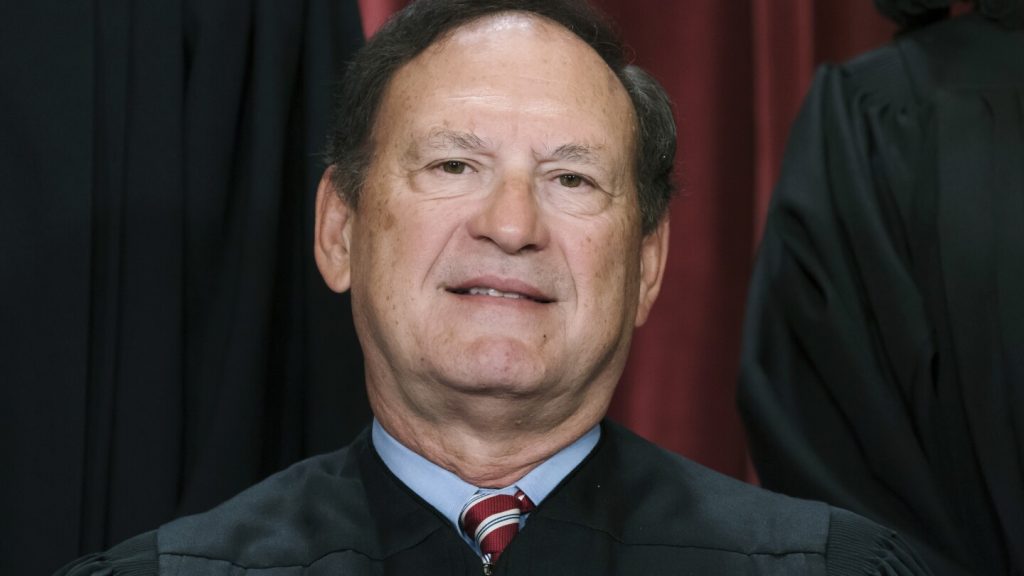An upside-down American flag, a symbol associated with former President Donald Trump’s false claims of election fraud, was displayed outside the home of Supreme Court Justice Samuel Alito in January 2021, as reported by The New York Times. This comes in the context of the recent storming of the U.S. Capitol by Trump supporters, raising concerns about Alito’s impartiality as the court considers two major cases related to the attack. The flag violated ethics rules set to avoid bias, with experts highlighting the importance of judges being independent and avoiding political statements.
At the time the flag was flying, the court was still considering whether to take up cases over the 2020 election. Alito, appointed by Republican President George W. Bush, wrote that the court’s consideration of the cases would have no impact on the election but would provide guidance for future elections. Despite acknowledging the presence of the flag at his home, Alito stated that it was placed there by his wife in response to a neighbor’s use of objectionable language on yard signs.
The dispute between Martha-Ann Alito and another family in the neighborhood over an anti-Trump sign on their lawn led to the flag being displayed. While Alito claimed no involvement in flying the flag, judicial ethics codes emphasize the need for judges to remain impartial and avoid political statements. The Supreme Court recently adopted its own code of ethics in response to criticisms, but lacks a means of enforcement. Law experts highlighted the potential implications of Alito displaying the flag in the context of deciding election-related cases.
The U.S. Flag Code stipulates that the American flag should not be flown upside down except in instances of dire distress. The use of the flag as a protest symbol has been seen on both the left and the right over the years. It gained prominence as a symbol of Trump’s “Stop the Steal” campaign, where he propagated baseless claims of election fraud. The Supreme Court has warned its employees about public displays indicating partisan leanings, but it is unclear if those rules apply to justices. Overall, the display of the upside-down flag at Alito’s home raises questions about judicial impartiality and the need for judges to remain independent in their decision-making processes.


